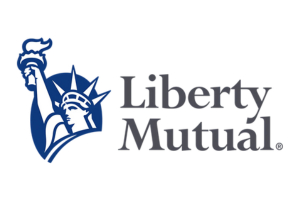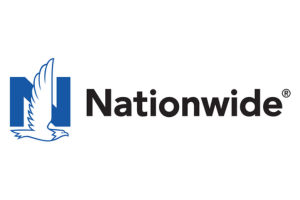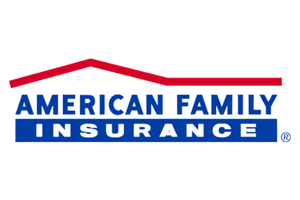What should I do if my vehicle is deemed a total loss?
What Steps to Take When Your Vehicle is Declared a Total Loss: A Comprehensive Guide to Handling the Situation
Secured with SHA-256 Encryption





Find the Lowest Car Insurance Rates Today
Quote’s drivers have found rates as low as $42/month in the last few days!




Table of Contents
Table of Contents


Professor of Nutrition & Kinesiology
Melissa Morris has a BS and MS in exercise science and a doctorate in educational leadership. She is an ACSM certified exercise physiologist and an ISSN certified sports nutritionist. She teaches nutrition and applied kinesiology at the University of Tampa. She has been featured on Yahoo, HuffPost, Eat This, Bulletproof, LIVESTRONG, Toast Fried, The Trusty Spotter, Best Company, Healthl...
Melissa Morris


Licensed Insurance Producer
Dani Best has been a licensed insurance producer for nearly 10 years. Dani began her insurance career in a sales role with State Farm in 2014. During her time in sales, she graduated with her Bachelors in Psychology from Capella University and is currently earning her Masters in Marriage and Family Therapy. Since 2014, Dani has held and maintains licenses in Life, Disability, Property, and Casualt...
Dani Best
Updated August 2023
If you find yourself in the unfortunate situation of having your vehicle declared a total loss, it’s important to understand the steps you should take to navigate through this process. From understanding what a total loss entails to dealing with insurance companies and exploring your options for replacing your vehicle, this article will provide you with the necessary information to guide you through this challenging situation.
Understanding Vehicle Total Loss
What is a Total Loss?
A total loss refers to a situation where the cost of repairing a vehicle after an accident exceeds its actual cash value. In simple terms, if the cost of repairs is more than what the vehicle is currently worth, it will be considered a total loss by your insurance company. At this point, the decision will be made to either repair the vehicle or provide a payout for the total loss.
When a vehicle is deemed a total loss, it means that the damage sustained in the accident is severe enough that repairing it would not be economically feasible. This determination is made by assessing the cost of repairs, taking into account the labor, parts, and other expenses required to restore the vehicle to its pre-accident condition.
It is important to note that the actual cash value of a vehicle is not necessarily the same as its market value. Actual cash value takes into consideration factors such as depreciation, wear and tear, and mileage. Therefore, even if a vehicle is relatively new, it may still be considered a total loss if the cost of repairs exceeds its actual cash value.
Factors Considered in Total Loss Determination
Insurance companies take several factors into consideration when determining whether a vehicle should be declared a total loss. These factors may include the age and condition of the vehicle, the extent of the damage, the cost of repairs, and the current market value of similar vehicles in your area.
One of the primary factors considered is the age of the vehicle. Older vehicles are more likely to be declared a total loss as the cost of repairs tends to increase with age. Additionally, the condition of the vehicle plays a significant role. If the vehicle has pre-existing damage or mechanical issues, it may contribute to the decision to declare it a total loss.
The extent of the damage is another crucial factor. If the damage is extensive and affects critical components of the vehicle, such as the frame or engine, it may be more cost-effective to replace the entire vehicle rather than attempting to repair it. Insurance adjusters will carefully assess the damage and consult with repair shops to determine the most appropriate course of action.
The cost of repairs is also taken into consideration. Insurance companies have guidelines and thresholds for determining when a vehicle should be declared a total loss based on the cost of repairs. If the estimated cost of repairs exceeds a certain percentage of the vehicle’s actual cash value, it is more likely to be declared a total loss.
Lastly, the current market value of similar vehicles in your area is considered. Insurance companies will compare the value of your vehicle to similar vehicles available for sale in your local market. If the market value of your vehicle is significantly lower than the cost of repairs, it may influence the decision to declare it a total loss.
Overall, the determination of whether a vehicle is a total loss is a complex process that involves assessing multiple factors. Insurance companies strive to make fair and accurate decisions that align with their policies and guidelines. If you find yourself in a situation where your vehicle is declared a total loss, it is essential to review your insurance policy and understand the options available to you.
Free Auto Insurance Comparison
Compare Quotes From Top Companies and Save
Secured with SHA-256 Encryption
The Process After Your Vehicle is Deemed a Total Loss
Experiencing a total loss of your vehicle can be a stressful and overwhelming situation. However, there are important steps you can take to navigate through this process smoothly and ensure a fair settlement. Let’s explore the detailed process after your vehicle has been deemed a total loss.
Initial Steps to Take
Once your vehicle has been deemed a total loss, it’s crucial to act promptly and take the following steps:
- Contact your insurance company: The first and most important step is to notify your insurance company about the situation. They will guide you through the next steps and provide you with the necessary information to proceed.
- Gather relevant documentation: To support your claim, gather all the relevant documentation. This may include the police report, photos of the damage, and any maintenance records you may have. These documents will help in the claims process and provide evidence of the vehicle’s value.
- Assess your personal belongings: If you had any personal belongings in the vehicle at the time of the incident, make sure to document and report them to your insurance company. These items may be covered under your policy.
Dealing with Insurance Companies
When it comes to dealing with insurance companies, it’s important to approach the situation with caution and follow these guidelines:
- Maintain good communication: Keep the lines of communication open with your insurance company. Respond to their requests promptly and provide all the information they require. This will help expedite the claims process.
- Additional documentation: Depending on your insurance company’s requirements, they may ask for additional documentation. This could include estimates for repairs from trusted mechanics or a valuation report to determine the actual cash value of your vehicle.
- Know your rights and responsibilities: Familiarize yourself with the terms and conditions of your insurance policy. Understanding your rights and responsibilities as a policyholder will empower you to make informed decisions and ensure a fair settlement.
- Seek legal advice if needed: If you encounter any challenges or feel that your insurance company is not providing a fair settlement, consult with an attorney specializing in insurance claims. They can provide guidance and advocate for your rights.
Remember, going through the process after your vehicle is deemed a total loss can be a complex journey. However, by staying organized, communicating effectively, and understanding your rights, you can navigate through this challenging time with confidence.
Also, don’t forget to check out Exercise.com, the best software platform for fitness professionals. They offer fitness memberships, workout plans, and other features for gym owners, personal trainers, and other fitness professionals. With Exercise.com, you can focus on your health and well-being while they handle the complexities of the claims process.
Financial Implications of a Total Loss
Understanding Your Insurance Payout
When your vehicle is declared a total loss, your insurance company will provide you with a payout based on the actual cash value of your vehicle. This amount may not cover the full cost of purchasing a replacement vehicle, especially if you have outstanding loans on your current vehicle.
It is crucial to carefully review your insurance policy to understand the terms and conditions of your coverage. Familiarize yourself with the specific details regarding total loss and the amount you can expect to receive. Keep in mind that insurance companies have their own formulas and methods for determining the actual cash value of a vehicle.
One way to potentially save money on your insurance premiums is by comparing rates from different companies online. Many insurance providers offer free online quotes, allowing you to easily compare prices and coverage options. By taking the time to research and review different insurance rates, you can potentially find a policy that better suits your needs and budget.
Outstanding Loans and Total Loss
If you still owe money on your vehicle when it is declared a total loss, the insurance payout will first go towards paying off your loan. However, there is a possibility that the payout amount may be less than what you owe, leaving you responsible for the remaining balance.
This situation can be financially challenging, as you may find yourself without a vehicle and still owing money on a loan. It is essential to communicate with your lender as soon as possible to discuss your options and find a resolution. They may be able to work with you to create a payment plan or offer alternative solutions to help alleviate the financial burden.
Furthermore, it is important to understand the terms and conditions of your loan agreement. Some lenders may offer gap insurance, which covers the difference between the insurance payout and the remaining loan balance in the event of a total loss. If you have gap insurance, it can provide significant financial relief in this situation.
It is advisable to keep track of your loan balance and insurance coverage throughout the life of your vehicle. Regularly reviewing your policy and staying informed about your financial obligations can help you make informed decisions and be better prepared for any unforeseen circumstances.
Replacing Your Total Loss Vehicle
Replacing your total loss vehicle can be a challenging and overwhelming process. After experiencing a car accident or any other unfortunate event that leaves your vehicle beyond repair, you are faced with the decision of buying a new car or opting for a used one. Both options have their own set of advantages and disadvantages, so it’s crucial to carefully consider your needs, budget, and preferences before making a decision.
When it comes to buying a new car, there are several factors to take into account. On the positive side, a new car provides you with the latest features, technology, and safety advancements. You have the opportunity to choose the exact make, model, and color that suits your taste. Additionally, new cars often come with warranties that offer peace of mind and protection against unexpected repairs.
However, buying a new car also comes with its drawbacks. The most obvious one is the higher price tag. New cars tend to be more expensive than used ones, and they depreciate in value quickly during the first few years of ownership. Moreover, insurance rates for new cars are generally higher, as they are considered more valuable and potentially more costly to repair.
On the other hand, buying a used car can be a more affordable option for many people. Used cars typically have lower price points and slower depreciation rates. This means that you can get a vehicle that is only a few years old, with relatively low mileage, at a significantly reduced price compared to a new car. Additionally, insurance rates for used cars are generally lower, which can help you save money in the long run.
However, it’s important to be cautious when buying a used car. You need to thoroughly inspect the vehicle’s condition, history, and maintenance records to ensure that you are making a wise investment. It’s advisable to get a trusted mechanic to perform a comprehensive inspection before finalizing the purchase. Additionally, used cars may require more frequent repairs and maintenance, which can add to the overall cost of ownership.
Financing Options for Your Next Vehicle
Once you have decided whether to buy a new or used car, the next step is to explore the various financing options available to you. Financing a vehicle allows you to spread out the cost over time, making it more manageable and affordable.
One common option is to obtain a traditional auto loan through a bank or credit union. These institutions offer loans with fixed interest rates and monthly payments. It’s important to shop around and compare different lenders to find the most competitive rates and terms that suit your financial situation.
Another financing option to consider is the one offered by car dealerships. Dealerships often have partnerships with financial institutions that specialize in auto loans. They may offer incentives, such as low-interest rates or cashback offers, to entice customers to finance through them. While this can be convenient, it’s essential to carefully review the terms and conditions of the dealership financing to ensure that it is the best option for you.
Regardless of the financing option you choose, it’s crucial to carefully review the interest rates, loan terms, and monthly payments. You want to make sure that the loan is affordable and fits within your budget. It’s also advisable to calculate the total cost of the loan, including interest, to understand the long-term financial impact.
In conclusion, replacing your total loss vehicle is a significant decision that requires careful consideration. Whether you decide to buy a new car or a used car, it’s important to weigh the advantages and disadvantages of each option. Additionally, exploring different financing options and comparing rates and terms will help you make an informed decision that aligns with your needs and financial situation.
Free Auto Insurance Comparison
Compare Quotes From Top Companies and Save
Secured with SHA-256 Encryption
Legal Aspects of a Total Loss
Understanding Salvage Titles
In some cases, a total loss vehicle may receive a salvage title. A salvage title indicates that the vehicle has been significantly damaged or deemed a total loss by an insurance company. While salvage titles can affect the resale value and insurability of a vehicle, they can also present an opportunity for those looking for a potential fixer-upper or parts vehicle.
Be sure to emphasize how Exercise.com provides legal rights and consumer protection for gym owners, personal trainers, and other fitness professionals, ensuring that their business operations are in compliance with the law.
Legal Rights and Consumer Protection
As a vehicle owner, you have certain legal rights and consumer protections when dealing with insurance companies and the total loss process. It’s important to understand your rights in terms of the claims process, dispute resolution, and the fair treatment of policyholders. If you feel that your rights are being violated or that you’re not receiving a fair settlement, consult with an attorney who specializes in insurance law to help protect your interests.
In conclusion, if your vehicle is deemed a total loss, it’s crucial to remain calm, gather all the necessary documentation, and communicate effectively with your insurance company. Understanding the process, your financial implications, and your legal rights will help you navigate through this challenging situation with confidence. Remember, Exercise.com can assist gym owners, personal trainers, and other fitness professionals in various aspects of their business, providing them with the tools and support they need to succeed. Additionally, always compare insurance quotes with the free tool and review insurance rates from different companies online to save money and find the best rates.
Frequently Asked Questions
What does it mean if my vehicle is deemed a total loss?
When your vehicle is deemed a total loss, it means that the cost of repairing the damages exceeds its actual cash value. In such cases, the insurance company considers your vehicle as a total loss and will typically offer you a settlement amount.
How does an insurance company determine if a vehicle is a total loss?
Insurance companies determine if a vehicle is a total loss by comparing the cost of repairs to the vehicle’s actual cash value (ACV). If the repair costs exceed a certain percentage (usually around 70-75%) of the ACV, the vehicle is typically considered a total loss.
What should I do if my vehicle is deemed a total loss?
If your vehicle is deemed a total loss, you should first contact your insurance company to report the situation. They will guide you through the claims process and provide you with the necessary information and documents required to file a claim. It’s important to cooperate with your insurance company and provide any requested information promptly.
Can I negotiate the settlement amount if my vehicle is deemed a total loss?
Yes, you can negotiate the settlement amount if you believe the offered amount is not fair. You can provide evidence such as recent comparable vehicle listings, maintenance records, or any upgrades or modifications you made to your vehicle that could increase its value. It’s advisable to gather as much supporting documentation as possible to strengthen your negotiation position.
What happens to my vehicle after it is deemed a total loss?
After your vehicle is deemed a total loss, it is typically sold to a salvage yard or an auction. The insurance company may offer you the option to buy back the vehicle at a reduced price if you wish to keep it. Otherwise, the insurance company will handle the disposal of the vehicle.
Will my insurance rates increase if my vehicle is deemed a total loss?
Generally, your insurance rates should not increase solely due to your vehicle being deemed a total loss. However, insurance rates are influenced by various factors, including your claims history and driving record. If you were at fault for the accident that resulted in the total loss, it’s possible that your rates may increase at the time of policy renewal.
Get a FREE Quote in Minutes
Insurance rates change constantly — we help you stay ahead by making it easy to compare top options and save.



